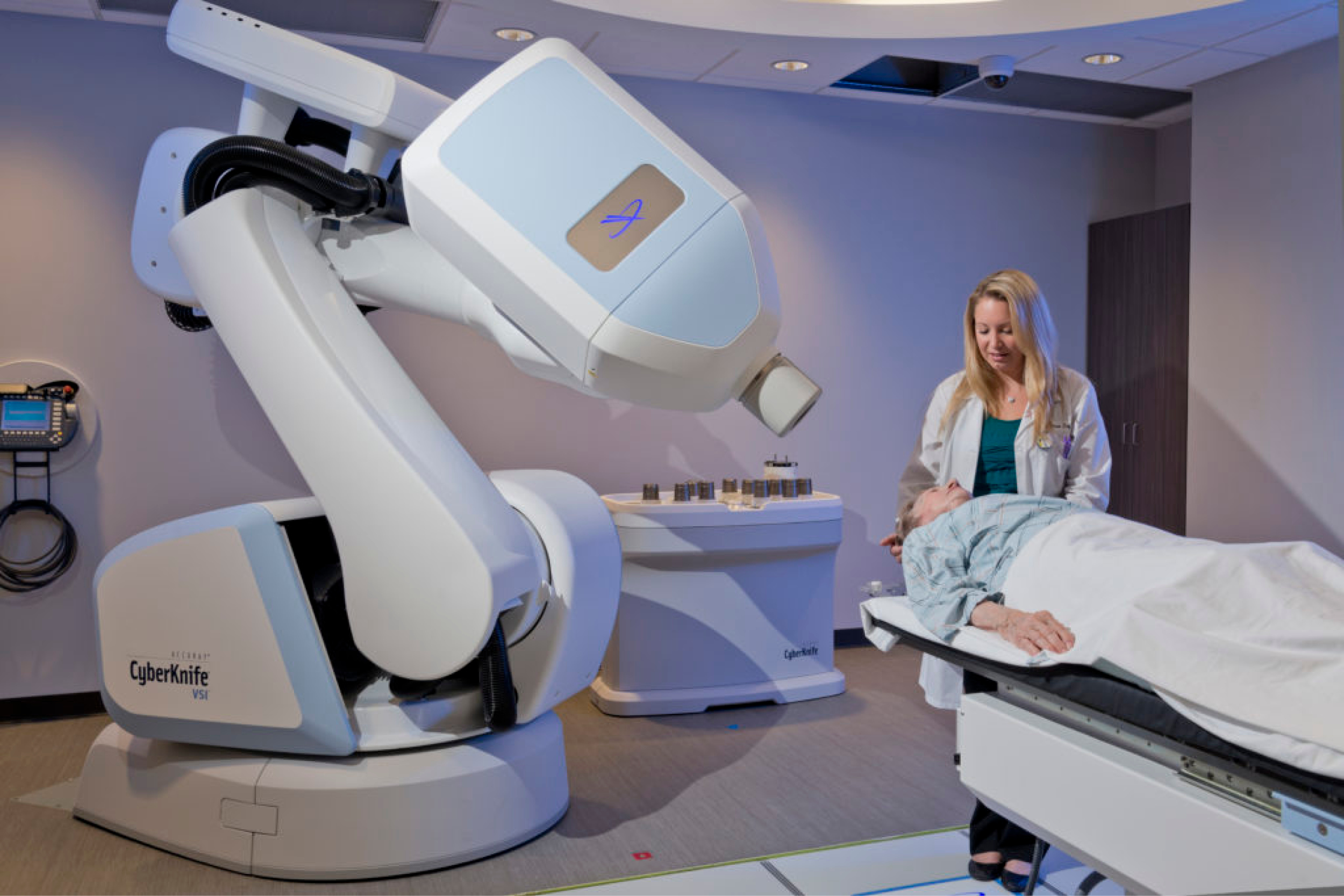What is Cyberknife?
CyberKnife is an advanced form of stereotactic body radiation therapy (SBRT) that utilizes cutting-edge imaging and robotic technology to deliver precise, high-dose radiation directly to cancerous tumors. This non-invasive treatment is often used to manage prostate cancer, among other types of cancer, offering targeted therapy with minimal impact on surrounding healthy tissue.
Is CyberKnife Invasive?
No, CyberKnife is entirely non-invasive. It uses real-time imaging to continuously track the tumor's position, allowing the radiation beams to adjust dynamically. This precision reduces the risk of damage to surrounding healthy tissues and typically requires fewer treatment sessions compared to traditional radiation therapy.
What Should You Expect?
Before treatment begins, small markers called fiducials are placed around your prostate to accurately define the treatment area. You may also receive a SpaceOAR hydrogel injection to protect the rectum from radiation exposure. A CT scan, and potentially an MRI or PET scan, will be performed to guide the treatment planning. During the CyberKnife sessions, the robotic system delivers precise radiation while constantly adjusting to any movement of your prostate. Each treatment typically lasts between 30 minutes, depending on the size and location of the tumor.
Why Is CyberKnife Recommended for Prostate Cancer?
CyberKnife is highly recommended for prostate cancer patients due to its ability to deliver high doses of radiation with sub-millimeter accuracy. This method reduces treatment length to just five days over 1.5 weeks, with each daily session being brief, despite the high precision required. CyberKnife minimizes side effects and offers a non-invasive alternative to traditional radiation therapy, making it a compelling option for effective cancer management.
How Does CyberKnife Work in Treating Prostate Cancer?
CyberKnife works by continuously monitoring the position of your prostate and the tumor, allowing for real-time adjustments in the radiation beams. Its a precise high dose radiation treatment that can kill the prostate cancer cells, therefore controlling and curing the prostate cancer.
What Are the Advantages of CyberKnife Over Other Prostate Cancer Treatments?
The primary advantage of CyberKnife is its exceptional precision, which significantly reduces the risk of side effects and damage to surrounding healthy tissues. Additionally, CyberKnife generally requires fewer treatment sessions compared to traditional radiation therapy, resulting in a shorter overall treatment and recovery time.
What Are the Potential Side Effects of CyberKnife Treatment?
Common side effects may include fatigue, urinary symptoms, and changes in bowel habits. Most of these side effects are temporary and typically resolve after the completion of treatment. Your healthcare team will provide detailed guidance on managing any side effects that arise during your treatment.
What is the Typical Treatment Schedule for CyberKnife?
The treatment schedule for CyberKnife is usually more condensed than that of traditional radiation therapy, often involving just 1-5 sessions over 1-2 weeks, compared to the 15-45 sessions over 3-10 weeks required by conventional methods. The exact number of sessions will depend on your specific cancer characteristics and treatment plan.
How Effective is CyberKnife in Treating Prostate Cancer?
CyberKnife has demonstrated high effectiveness in treating prostate cancer, with many patients achieving positive outcomes and long-term remission. The success of the treatment depends on various factors, including the stage and grade of the cancer, but overall, CyberKnife offers a highly effective option for many patients.
Who Should Not Receive CyberKnife Treatment for Prostate Cancer?
Patients with an enlarged prostate may need hormone therapy to shrink the prostate before undergoing CyberKnife treatment. Additionally, patients with cancer in the lymph nodes or those at an increased risk of cancer spreading to the lymph nodes may not be ideal candidates for CyberKnife and should consult their doctor about alternative treatment options.


